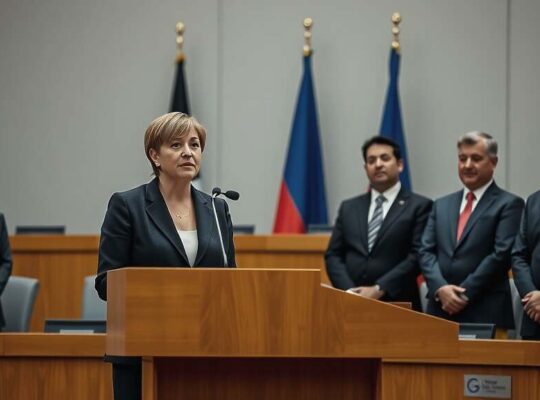The emergence of “Compass Mitte” a new CDU faction advocating for a more moderate course, has ignited a fierce internal debate within the German Christian Democratic Union (CDU), prompting a robust defense of the initiative by Dennis Radtke, chairman of the CDA (Christdemokratische Arbeitnehmerschaft). Radtke, while not a signatory to the group’s manifesto, expressed surprise at the intensity of the backlash against “Compass Mitte” in an interview with the “Süddeutsche Zeitung”.
The initiative’s core argument challenges the increasingly conservative trajectory of the CDU and explicitly warns against any coalition with the far-right Alternative for Germany (AfD). This position has drawn criticism from within the party, though Radtke has sharply rebuked those criticizing the group’s aims. He argued that the vitriol directed at “Compass Mitte” is particularly ironic, given previous complaints under Angela Merkel’s leadership regarding a lack of internal debate.
Radtke’s criticism underscored a broader tension within the CDU: the tendency to conflate policy discussion with personal attacks on party leadership. He stressed that dismissing members raising legitimate concerns, expressing anxieties and advocating for what he considers fundamental CDU principles as “non-debating” is counterproductive and inappropriate.
The involvement of Ruprecht Polenz, former CDU General Secretary, among the initiative’s founders lends the group significant weight, highlighting the depth of dissatisfaction within the party establishment. While the initiative’s precise impact remains to be seen, it underscores a critical juncture for the CDU, forcing a reckoning between its conservative base and those advocating for a more broadly appealing and crucially, politically sustainable platform. The internal conflict highlights a potential struggle for the party’s soul, pitting those seeking reconciliation with the center against a faction seemingly entrenched in a trajectory towards the political fringes.












